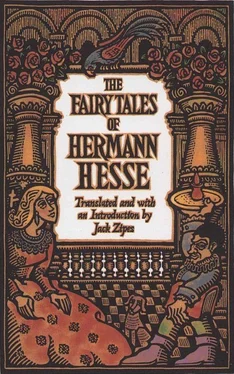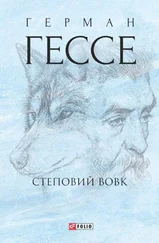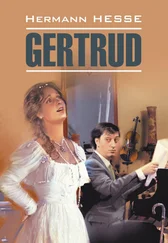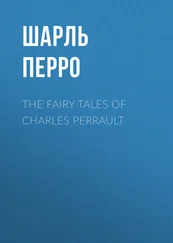Hermann Hesse - The Fairy Tales of Hermann Hesse
Здесь есть возможность читать онлайн «Hermann Hesse - The Fairy Tales of Hermann Hesse» весь текст электронной книги совершенно бесплатно (целиком полную версию без сокращений). В некоторых случаях можно слушать аудио, скачать через торрент в формате fb2 и присутствует краткое содержание. Год выпуска: 1995, ISBN: 1995, Издательство: Bantam Books, Жанр: Классическая проза, Сказка, на английском языке. Описание произведения, (предисловие) а так же отзывы посетителей доступны на портале библиотеки ЛибКат.
- Название:The Fairy Tales of Hermann Hesse
- Автор:
- Издательство:Bantam Books
- Жанр:
- Год:1995
- ISBN:9780553377767
- Рейтинг книги:5 / 5. Голосов: 1
-
Избранное:Добавить в избранное
- Отзывы:
-
Ваша оценка:
- 100
- 1
- 2
- 3
- 4
- 5
The Fairy Tales of Hermann Hesse: краткое содержание, описание и аннотация
Предлагаем к чтению аннотацию, описание, краткое содержание или предисловие (зависит от того, что написал сам автор книги «The Fairy Tales of Hermann Hesse»). Если вы не нашли необходимую информацию о книге — напишите в комментариях, мы постараемся отыскать её.
The Fairy Tales of Hermann Hesse — читать онлайн бесплатно полную книгу (весь текст) целиком
Ниже представлен текст книги, разбитый по страницам. Система сохранения места последней прочитанной страницы, позволяет с удобством читать онлайн бесплатно книгу «The Fairy Tales of Hermann Hesse», без необходимости каждый раз заново искать на чём Вы остановились. Поставьте закладку, и сможете в любой момент перейти на страницу, на которой закончили чтение.
Интервал:
Закладка:
In the case of the parrot, its life came to a quick end. One day as Signore Morosini was tormenting it by picking at it with his small cane, the enraged bird pecked his hand with its strong and sharp beak until a finger bled. In response, Morosini had the bird strangled and thrown into the narrow dark canal in back of the house, and nobody mourned it.
Soon after this, things did not go much better for the little dog Fino. Whenever the bridegroom entered Margherita’s house, the dog hid in a dark corner of the stairs, as it had learned not to be seen when it heard the sound of this man’s footsteps. But one time — when perhaps Baldassare had forgotten something in his gondola and did not trust any of his servants to fetch it — he turned around at the top of a flight and walked unexpectedly down the stairs. The frightened Fino barked loudly in his surprise and jumped about so frantically and clumsily that he almost caused the signore to fall. Baldassare stumbled and reached the corridor floor at the same time that the dog did, and since the frightened little animal scrambled right up to the entrance, where some wide stone steps led into the canal, Baldassare gave him a violent kick along with some harsh curses. As a result, the little dog was propelled far out into the water.
Just at this moment the dwarf appeared in the doorway. He had heard Fino’s barking and whimpering, and now he stood next to Baldassare, who looked on with laughter as the little lame dog tried anxiously to swim. At the same time the noise drew Margherita to the balcony of the first floor.
“Send the gondola over to him, for God’s sake!” Filippo yelled to her breathlessly. “Mistress, have him fetched right away! He’s going to drown! Oh Fino, Fino!”
But Baldassare laughed and commanded the gondolier, who was about to untie the gondola, to stop. Again Filippo turned to his mistress to beg her, but Margherita left the balcony just at that moment without saying a word. So the dwarf knelt down before his tormentor and implored him to let the dog live. The signore refused and turned away from him. Then with severity he ordered the dwarf to go back into the house. He himself remained on the steps of the gondola until the small gasping Fino sank beneath the water.
Filippo climbed to the top floor beneath the roof, where he sat in a corner, held his large head in his hands, and stared straight ahead. A chambermaid came to summon him to his mistress, followed by a servant. But the dwarf did not move. Later in the evening, while he was still sitting up there, his mistress herself climbed up to him with a light in her hand. She stood before him and looked at him awhile.
“Why don’t you get up?” she finally asked. He did not answer. “Why don’t you get up?” she asked again.
Then the stunted little man looked at her and said, “Why did you kill my dog?”
“It wasn’t me who did it,” she sought to justify herself.
“You could have saved him, but you let him die,” the dwarf accused. “Oh my darling! Oh Fino, oh Fino!”
Then Margherita became irritated and impatiently ordered him to get up and go to bed. He obeyed her without saying a word and remained silent for three days like a dead man. He hardly ate his meals and paid no attention to anything that happened around him or that was said.
During these days the young signorina became greatly troubled. In fact, she had heard from different sources certain things about her fiancé that upset her to no end. It was said that the Signore Morosini had been a terrible philanderer on his journeys and had numerous mistresses on the island of Cyprus and in other places. Since this was really the truth, Margherita became filled with doubt and fears and contemplated Baldassare’s forthcoming voyage with bitter sighs. Finally she could stand it no longer. One morning when Baldassare was in her house, she told him everything she knew and did not conceal the least of her fears.
He smiled and said, “What they have told you, my dearest and most beautiful lady, may be partly false, but most of it is true. Love is like a wave. It comes, lifts us up high, and sweeps us away without our being able to resist it. Nevertheless, I’m fully aware of what I owe my bride and the daughter of such a noble house. Therefore you need not fret. I have seen many a beautiful woman here and there and have fallen in love with many, but there is none who can compare to you.”
And because a magic emanated from his strength and boldness, she calmed down, smiled, and stroked his hard brown hand. But as soon as he left, all her fears returned to haunt her. As a result, this extremely proud lady now experienced the secret, humiliating pain of love and jealousy and lay awake every night for half the night in her silken sheets.
In her distress she turned once again to her dwarf Filippo, who meanwhile had regained his composure and acted as if he had forgotten the disgraceful death of his little dog. He sat on the balcony as he had before, reading books or telling stories, while Margherita bleached her hair in the sun. Only one time did she specifically recall that incident, and that was when she asked him why he was so deeply buried in his thoughts, and he replied in a strange voice, “God bless this house, most gracious mistress, that I shall soon leave dead or alive.”
“Why?” she responded.
Then he shrugged his shoulders in his ridiculous way and said, “I sense it, mistress. The bird is gone. The dog is gone. What reason does the dwarf have for staying here?”
Thereupon she seriously forbade him ever to talk like that again, and he did not speak about it anymore. Indeed, the lady became convinced that he no longer thought about it, and she once again had complete trust in him. Whenever she talked to him about her concerns, he defended Signor Baldassare and did not reveal in any way that he held anything against the young cavalier. Consequently the dwarf regained the full friendship of his mistress.
One summer evening, as a cool wind was sweeping in from the sea, Margherita climbed into her gondola along with the dwarf and had herself rowed out into the open sea. When the gondola came near Murano, the city was swimming like a white image of a dream in the distance on the smooth, glittering lagoon. She commanded Filippo to tell a story, while she lay stretched out on the black cushion. The dwarf crouched across from her on the bottom of the gondola, his back turned toward the high bow of the vessel. The sun hung on the edge of the distant mountains, which could hardly be seen through the rosy haze. Some bells began to ring on the island of Murano. The gondolier, numb from the heat and half asleep, sluggishly moved his long rudder, and along with the rudder, his bent figure was reflected in the water laced with seaweed. Sometimes a freight barge sailed close by, or a fishing boat with a lateen sail, whose pointed triangle momentarily concealed the distant towers of the city.
“Tell me a story!” commanded Margherita, and Filippo bent his heavy head, played with the gold fringes of his silk dress-coat, deliberated a while, and told the following tale:
“During the time my father lived in Constantinople, long before I was born, he experienced something most remarkable and unusual. At that time he was a practicing doctor and consultant in difficult cases, having learned the science of medicine and magic from a Persian who lived in Smyrna and had gained a great deal of knowledge in both fields. My father was an honest man and depended not on deception or flattery but only on his art. Nevertheless, he suffered from the envy and slander of many a swindler and quack. So he kept yearning for an opportunity to return to his homeland. On the other hand, my father did not want to travel home until he had amassed at least a small fortune, for he knew his family and relatives were languishing in poverty at home. Although he witnessed numerous deceivers and incompetent doctors grow rich without effort, he himself did not enjoy any luck. Consequently he became more and more despondent and almost gave up hope of achieving success without tricking people. Although he did in fact have many clients and had helped hundreds of people in very difficult situations, they were mostly the poor and humble, and he would have felt ashamed to accept more than a small token from them for his services.
Читать дальшеИнтервал:
Закладка:
Похожие книги на «The Fairy Tales of Hermann Hesse»
Представляем Вашему вниманию похожие книги на «The Fairy Tales of Hermann Hesse» списком для выбора. Мы отобрали схожую по названию и смыслу литературу в надежде предоставить читателям больше вариантов отыскать новые, интересные, ещё непрочитанные произведения.
Обсуждение, отзывы о книге «The Fairy Tales of Hermann Hesse» и просто собственные мнения читателей. Оставьте ваши комментарии, напишите, что Вы думаете о произведении, его смысле или главных героях. Укажите что конкретно понравилось, а что нет, и почему Вы так считаете.












